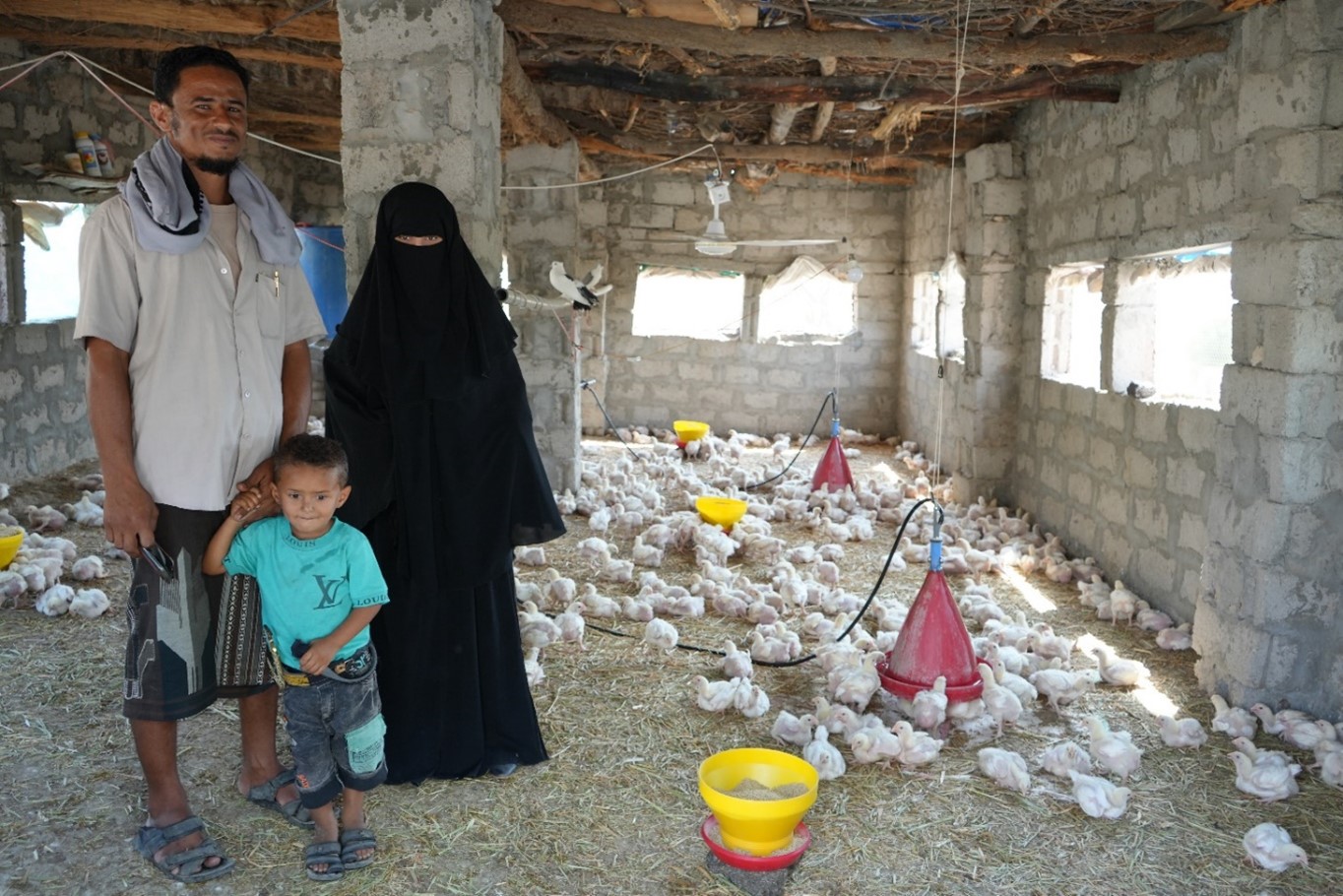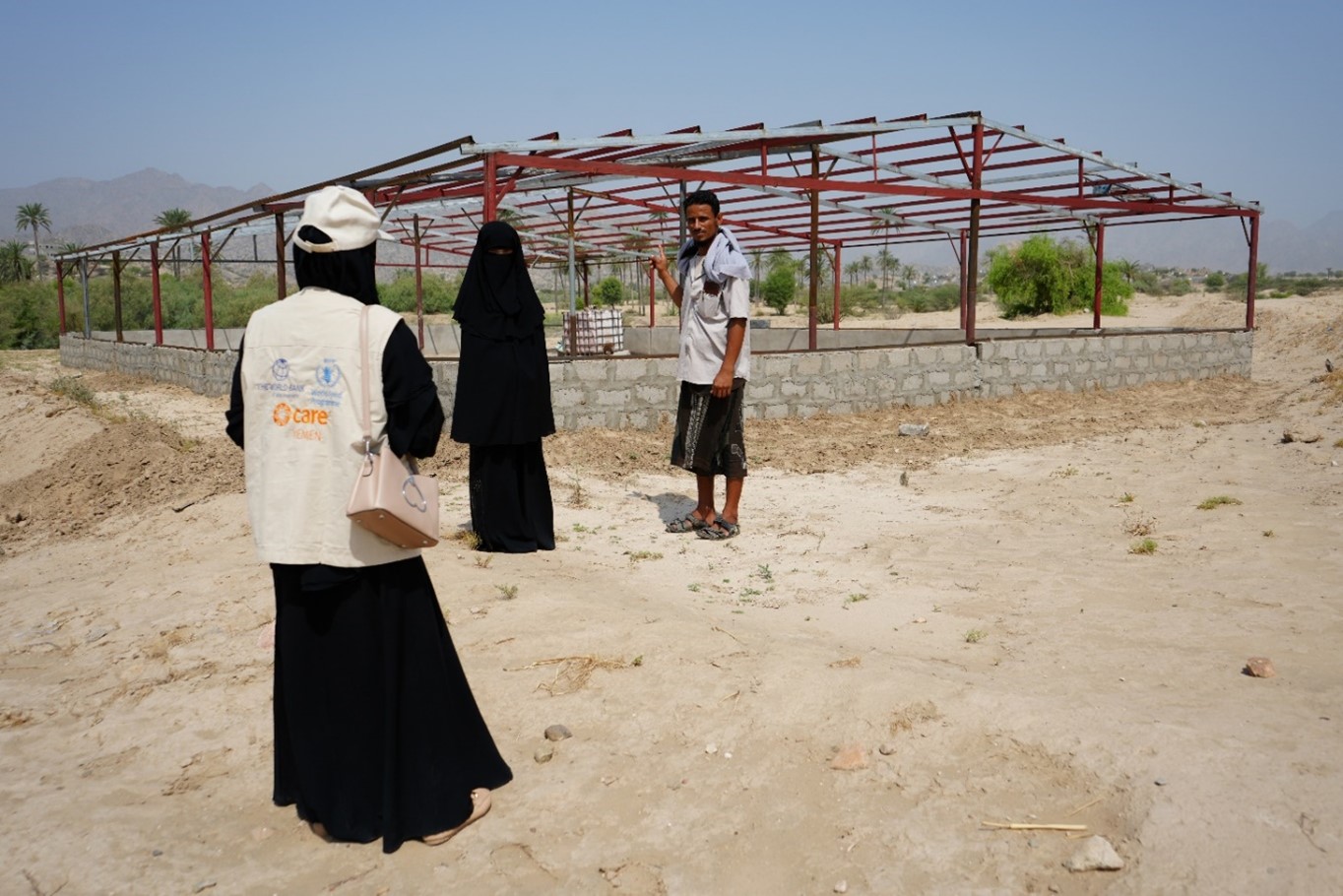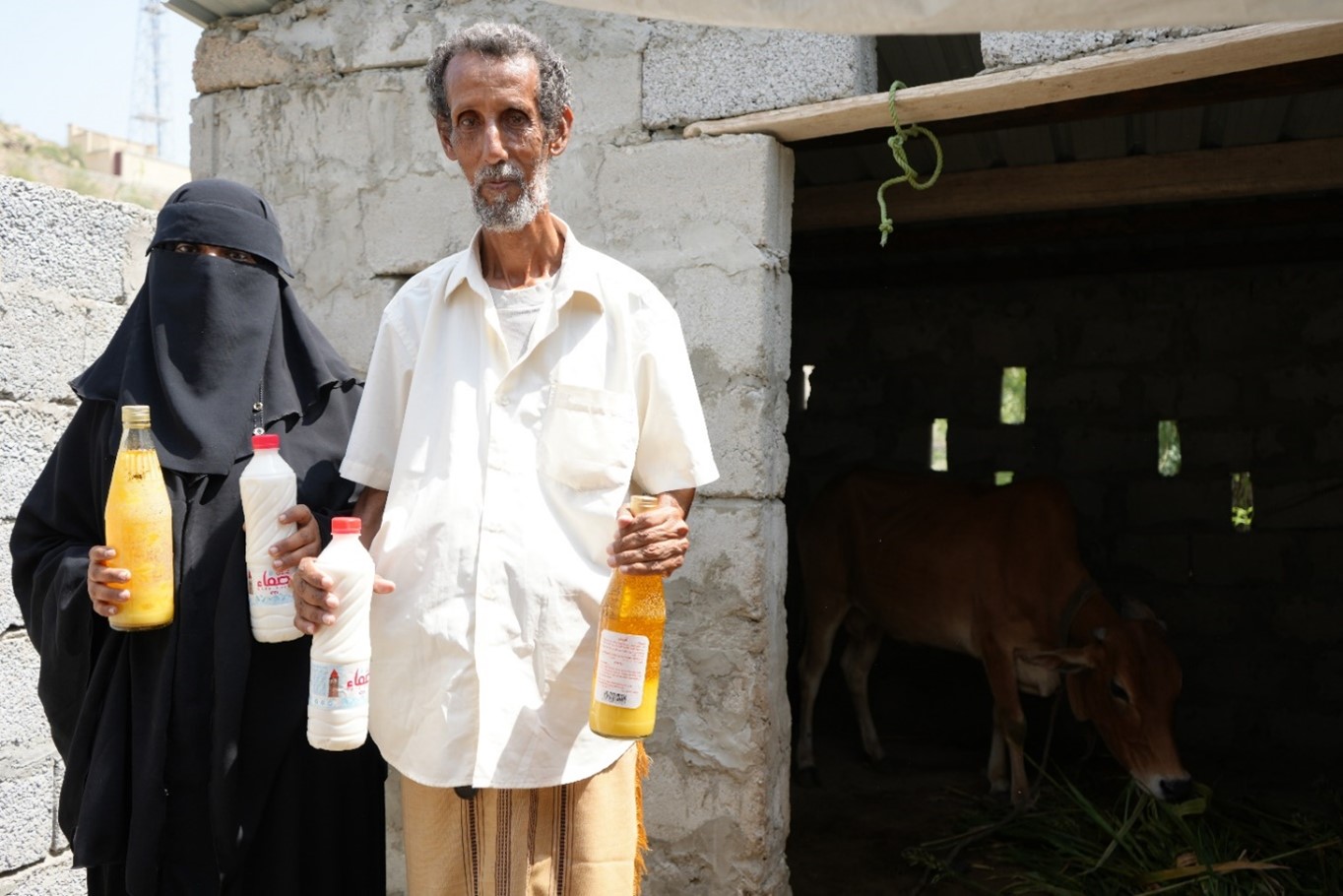When economically empowered, women are more likely to invest in their families and communities. Empowered women help their families break free from poverty and enhance children’s health, education, and nutrition.
Women make up a significant proportion of the workforce in Yemen’s rural economy, yet they often face many barriers to accessing economic opportunities. Supporting rural women to access micro and small enterprises fosters rural development. “It is difficult to boost economic growth in Yemen’s countryside if over half of the community is excluded, and here I mean women,” says Aiman Omar, CARE’s Early Recovery Officer.
To address durable empowerment for rural women in Yemen, CARE delivers a Food Assistance for Training (FFT) project to improve food security and sustainable livelihoods of conflict-affected families in Lahj and Al-Dhale’e Governorates.
Combining cash assistance with training and capacity-building activities in business management, life skills, and vocational training, the FFT project enables 2,150 women to meet their immediate food needs with the cash they receive in exchange for attending 90 days of training. In addition, the project encourages women to meet their long-term needs by equipping them with the necessary skills and financial grants to start their small businesses and support their families and communities.
In this article, we shine a light on two of the many inspiring micro-enterprises made possible by the FFT project in Lahj Governorate.






